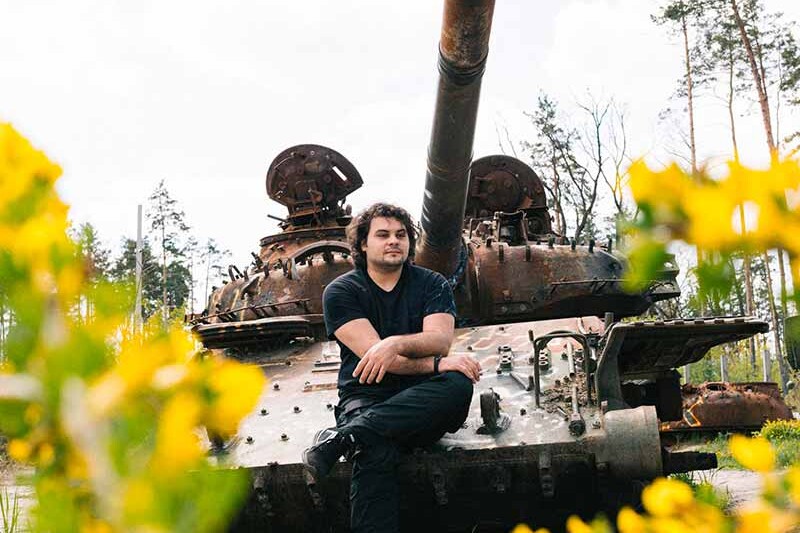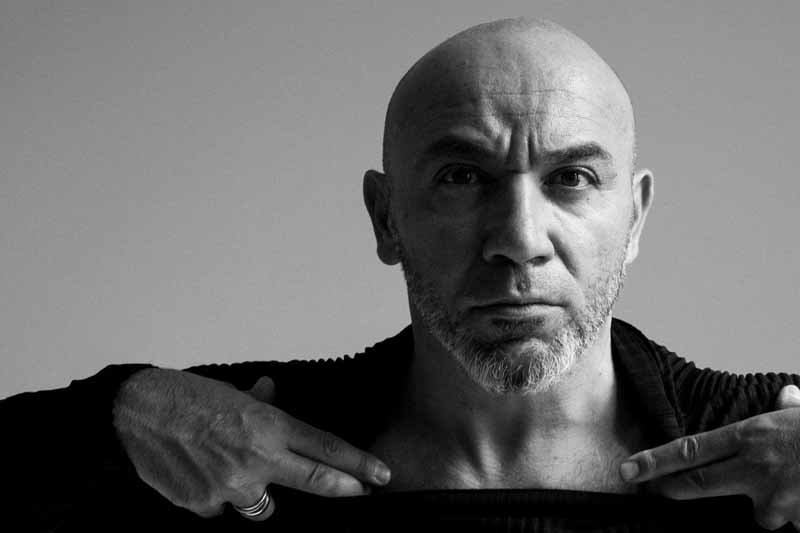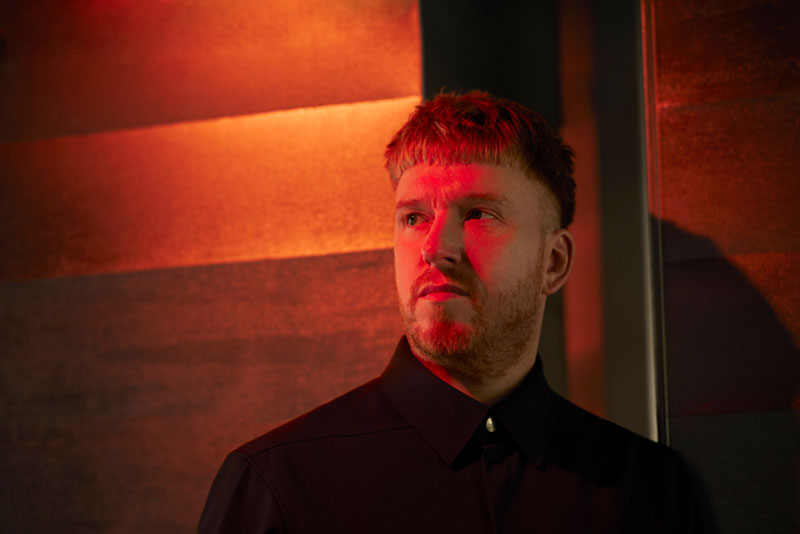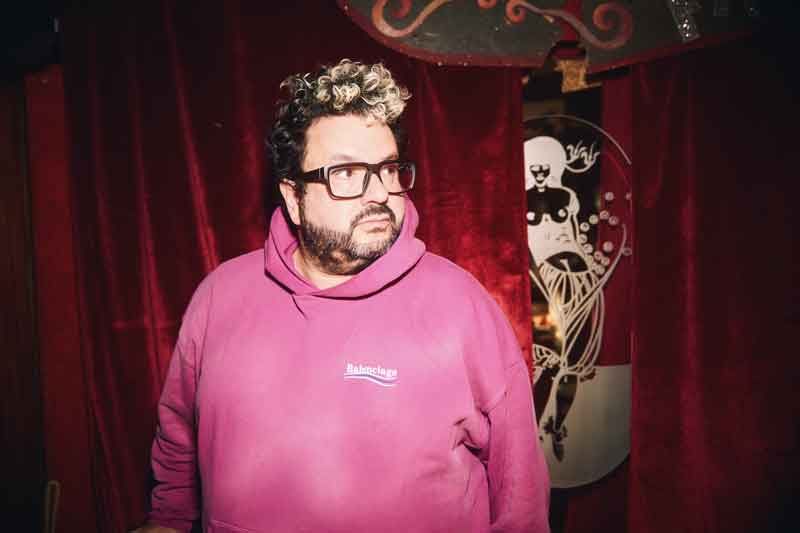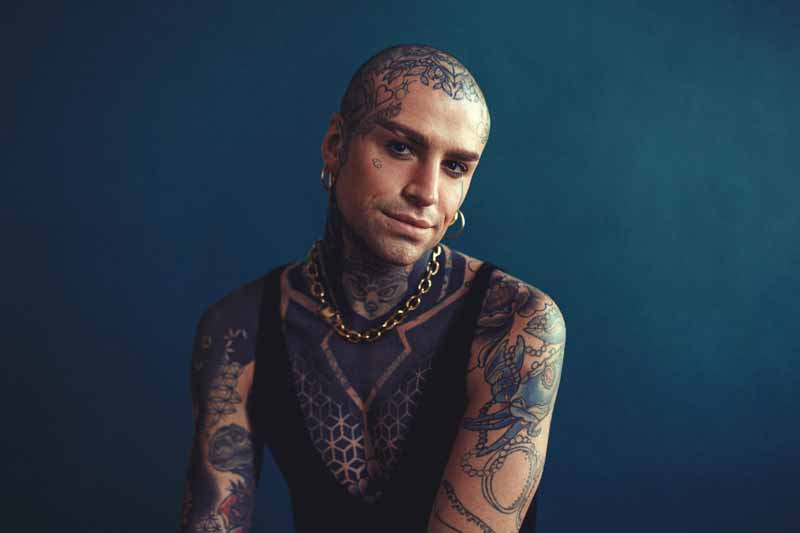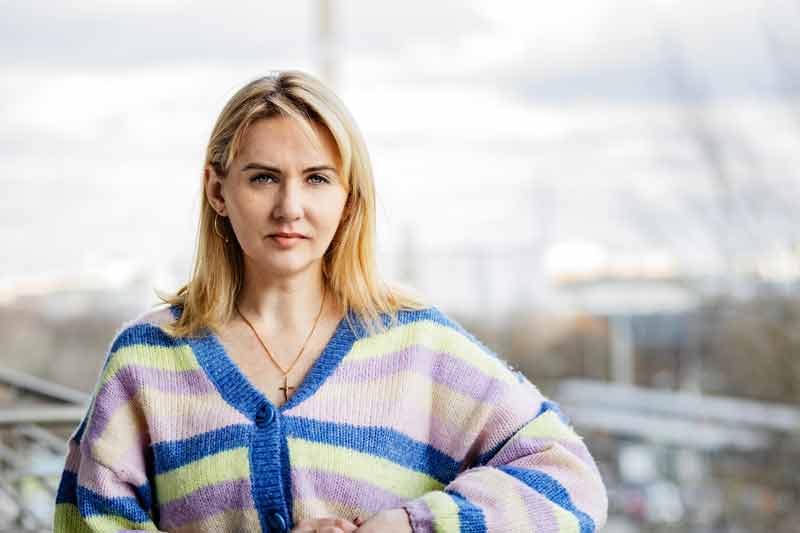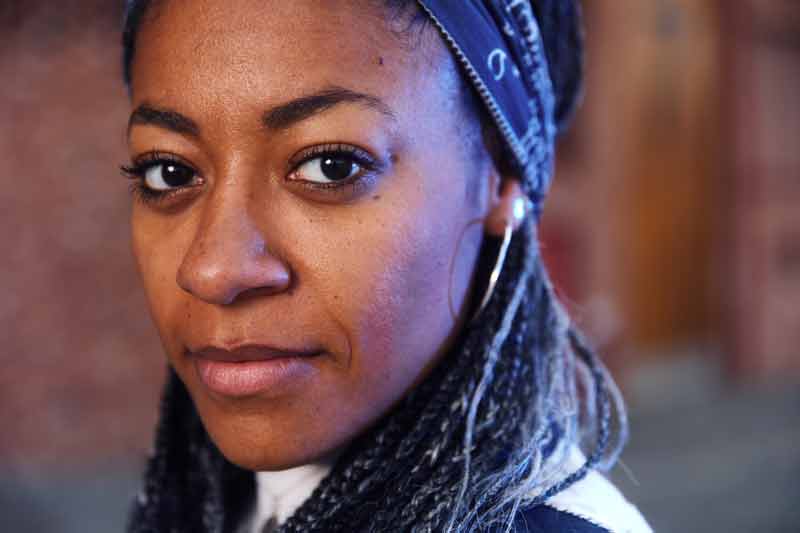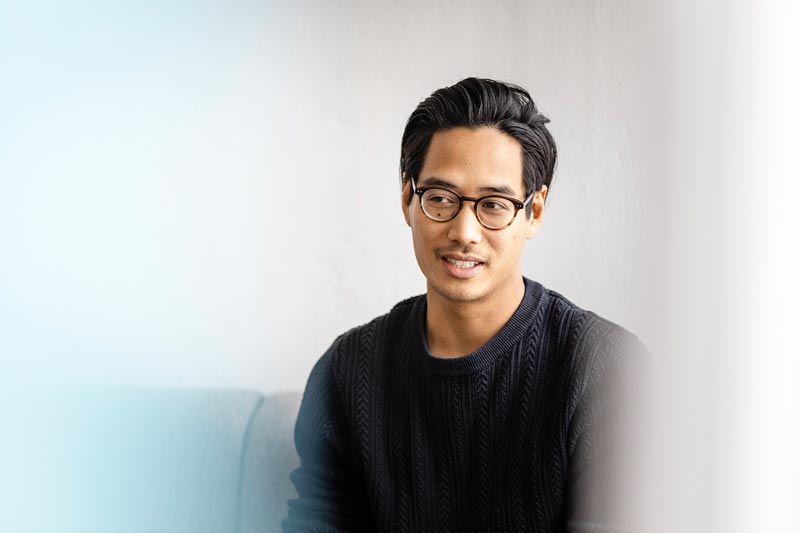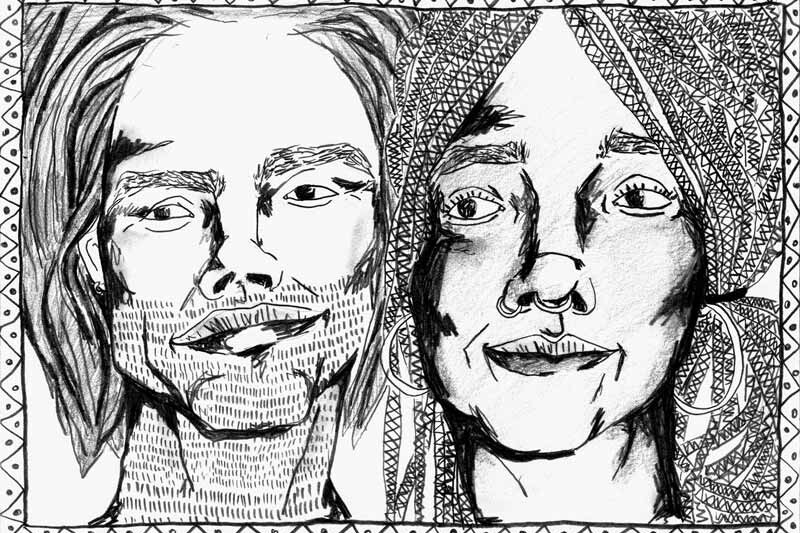Interview — Artists Of The Future (4)
Kim Ki O
Istanbul-based electro-pop duo Kim Ki O on how to make peace with your failures and the odds of making political music in Turkey.
17. April 2019 — MYP N° 24 »Tomorrow« — Interview: Katharina Weiß, Photography: Lea Bräuer
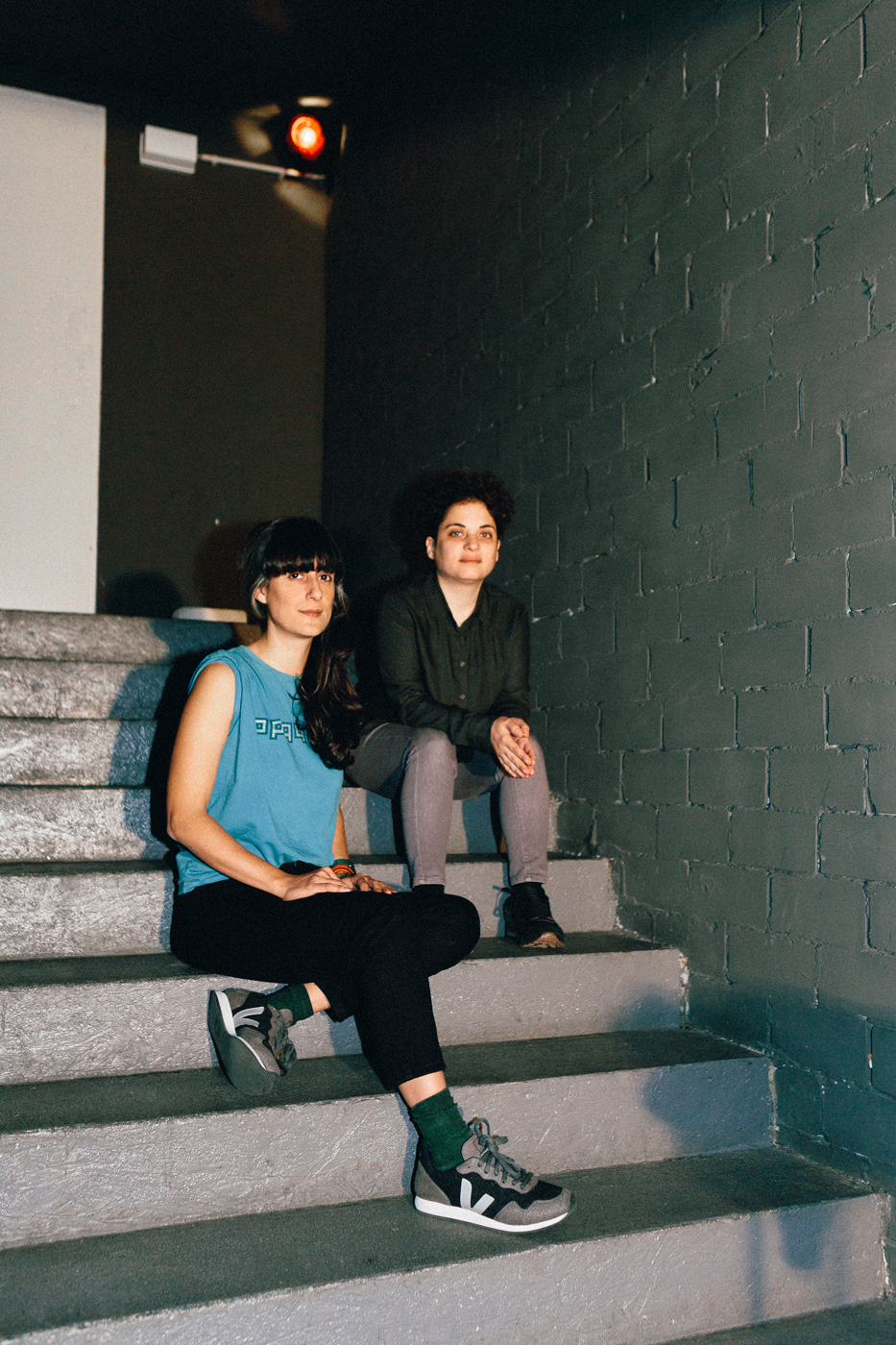

Part 4 of our »Artists Of The Future« series:
Kim Ki O
When activism meets art: To female, trans and non-binary artists, the chances of making a career in show business can resemble that of a particularly nasty dice game. DICE Conference + Festival wants to shift the power structures in the entertainment industry, which is why during the three days of DICE, cis-male artists stay in the audience. MYP met some of the international artists performing at DICE in Arkaoda, Berlin-Neukölln.
This time, we’re featuring Istanbul-based composers Ekin Sanaç (synth) and Berna Göl (bass guitar). Together they are Kim Ki O, which can be translated as “Who is s/he anyway?”. The electro-pop duo’s work evolves around finding your voice in a political system that tries to erase individual identities.
Katharina:
In your opinion, how are the two terms “being an artist” and “being an activist” related?
Bernal:
I don’t know if we would call ourselves activists, but we take it as a compliment. Nevertheless, we both like to have political content in the creative work we do.
Ekin:
We owe a lot to activists and their various struggles. They inspire us.
»We started our band consciously as a women’s band positioned against the patriarchal system.«
Katharina:
How has a certain struggle over identity shaped your path?
Ekin:
Bernal and I grew up together. It was pretty clear from the very start that Kim Ki O would be heavily influenced by female artists and their fights for justice. So we started our band consciously as a women’s band positioned against the patriarchal system.
Bernal:
At the moment I think we’re trying to move from a personal level to a bigger scale to gather more people that disagree with current power structures.
»I don’t like to be labeled as a ›female artist‹ all the time. Just ›artist‹ would be enough.«
Katharina:
Complete the sentences: I hate being labeled as…
Bernal:
… privileged. I would not want to be labeled as privileged. I also don’t like to be labeled as a “female artist” all the time. Just “artist” would be enough.
Ekin:
… cute. I hate when someone calls me cute.
Katharina:
On the contrary, I would wish to be appreciated for my…
Ekin:
… ability to create something.
Bernal:
… hard work and consistency.
»We try not to use failure as something that happens and then you’re stuck with it.«
Katharina:
Your album Zen is themed around the discourse of failure. How does it sound like and which stories have inspired the songs?
Bernal:
We try not to use failure as something that happens and then you’re stuck with it. We use it as something you learn to live with. You can always choose to keep going—and we try to be part of this empowering message: Make peace with your own failure in a productive way!
Katharina:
Do you face any oppression in Turkey?
Ekin:
It depends on your popularity and the tone you use when you oppose a political decision. If you are underground, like we are, and if you stay subtle, it’s O.K. In Zen we have songs about the state of war and many other cruel things, but we stay abstract in our expression. In our few safe spaces we can still create freely.
Bernal:
We try not to be in “people’s faces.”
Katharina:
The location we’re at right now, the Arkaoda club, is a homage to the legendary nightclub of the same name in Istanbul. Can the Berlin variant compete with your hometown?
Bernal:
I wouldn’t see it as a competition.
Ekin:
We basically grew up at Arkaoda in Istanbul, it was the club of our high school years. It is nice to see the concept of it transferred to Berlin.
Bernal:
The two clubs are the same, but different. There’s this special Berlin vibe here.
»It’s such a thrilling concept to think of AI as something that is beyond the human categories of gender.«
Katharina:
When performing as a duo, creativity merges together. But to ask you individually: Can you tell me some of the latest philosophical or political discoveries you have made?
Ekin:
You guys have to read the Neapolitan Novels by Elena Ferrante.
Bernal:
I want to recommend this Sci-Fi author Ann Leckie. She is famous for this trilogy about the future of Artificial Intelligence, which is genderless in her books. It’s such a thrilling concept to think of AI as something that is beyond the human categories of gender.
#kimkio #diceberlin #mypmagazine
More about DICE Conference + Festival:
Interview & Text: Katharina Weiß
Photography: Lea Bräuer

